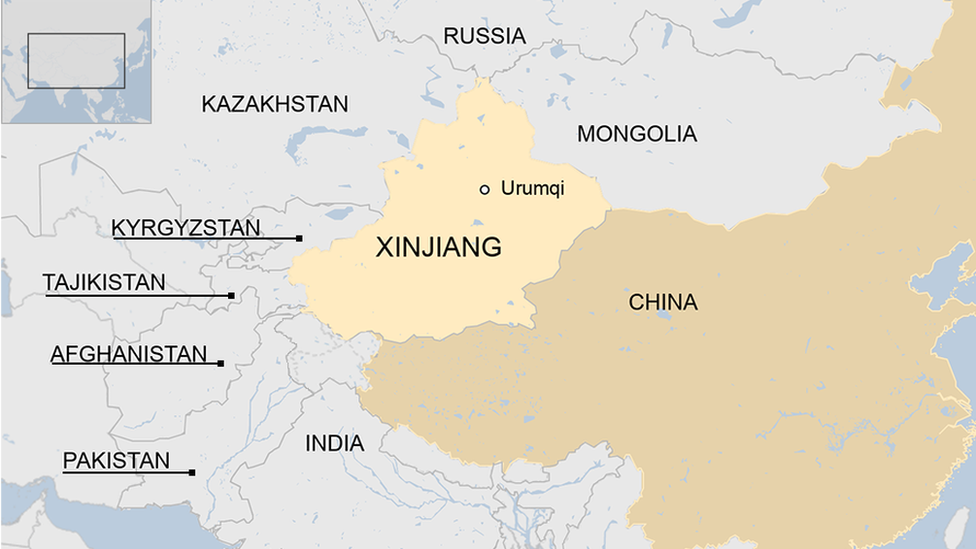Xinjiang: Ex-Blackwater chief's security firm linked to China training centre
- Published
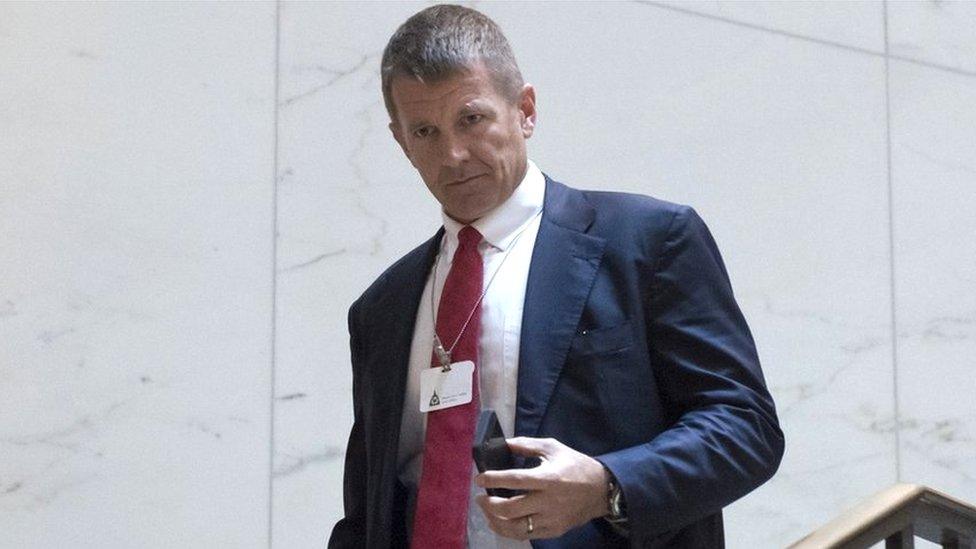
Erik Prince, seen here in Washington DC in 2017, says he has "no knowledge" of the deal
A security firm founded by ex-Blackwater chief Erik Prince has signed a preliminary deal to build a training centre in China's Xinjiang region, according to a company statement.
Hong Kong-listed Frontier Services Group (FSG) announced the deal on its website in a now deleted post.
Blackwater guards hired by the US played a controversial role in Iraq.
Xinjiang has recently been the focus of a security crackdown that has seen mass detentions of Uighur Muslims.
China has defended its use of internment camps in Xinjiang, describing them as "vocational training centres" that it says are proving effective in staving off terrorism through "thought transformation".
But it has come under international criticism for allegedly having held up to a million people.
Private firm FSG already provides security training services to companies based in China, as well as a number of Chinese companies that operate overseas, particularly in Africa.
In a statement posted on its Chinese-language website on 22 January, FSG said one of its subsidiaries had signed a deal for a "training centre" with the Kashgar Caohu industrial park in Xinjiang.
On Friday, an FSG spokesman told AFP news agency that Mr Prince had "no knowledge or involvement whatsoever" of the announced preliminary agreement.
The spokesman added that any such investment or deal would require the approval of all FSG board members.
Mr Prince, who is a minority shareholder in the company and also a board member, is a former US Navy Seal and the brother of US Education Secretary Betsy DeVos.
He sold Blackwater - which was re-named Xe Services and later Academi - to a group of investors in 2010.
In 2014, four former Blackwater guards were convicted on murder and manslaughter charges in the US and jailed the following year over the killing of 14 unarmed Iraqi civilians in Baghdad in 2007.
They had claimed they were under fire from insurgents as they escorted a diplomatic convoy, but a court in Washington DC found them guilty of an unprovoked attack.
The firefight ignited an international debate over the role of defence contractors and strained US-Iraq relations.
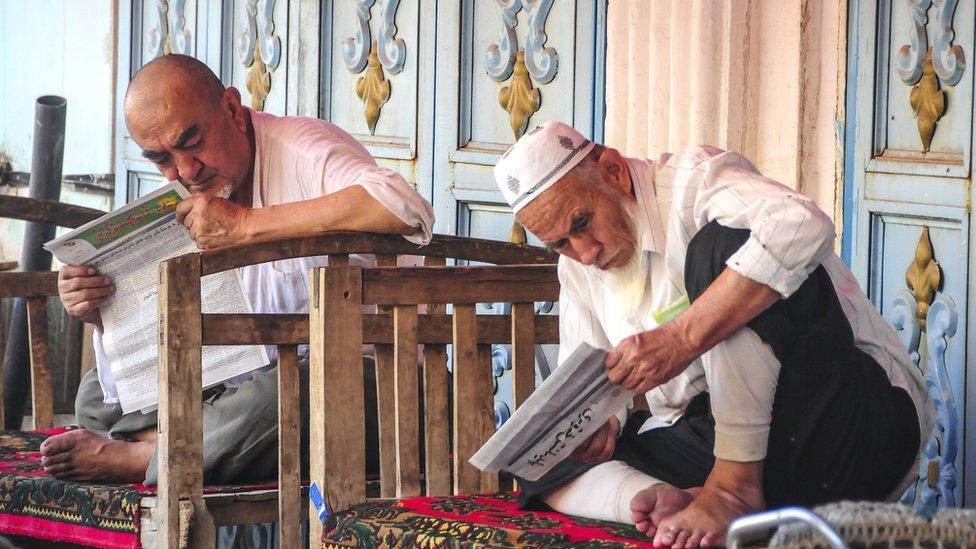
Uighurs are ethnically Turkic Muslims mostly based in Xinjiang
China's massive security crackdown in Xinjiang has sparked widespread alarm.
Rights groups say Uighurs and other Muslim minorities are being detained indefinitely without charge for infractions like refusing to give a DNA sample, speaking in a minority language or arguing with officials.
China denies the allegations, insisting that its actions are necessary to prevent terrorism.
Uighurs, ethnically Turkic Muslims who make up about 45% of the population in Xinjiang, see themselves as culturally and ethnically close to Central Asian nations, and their language is similar to Turkish.
In recent decades, large numbers of Han Chinese (China's ethnic majority) have migrated to Xinjiang, and the Uighurs feel their culture and livelihoods are under threat.
Xinjiang is officially designated as an autonomous region within China, like Tibet to its south.
- Published8 November 2018
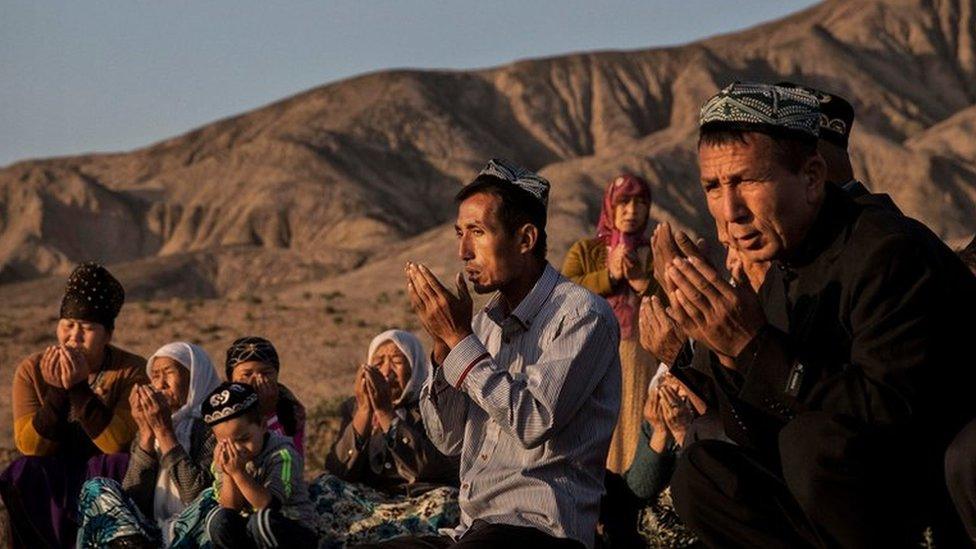
- Published6 November 2018
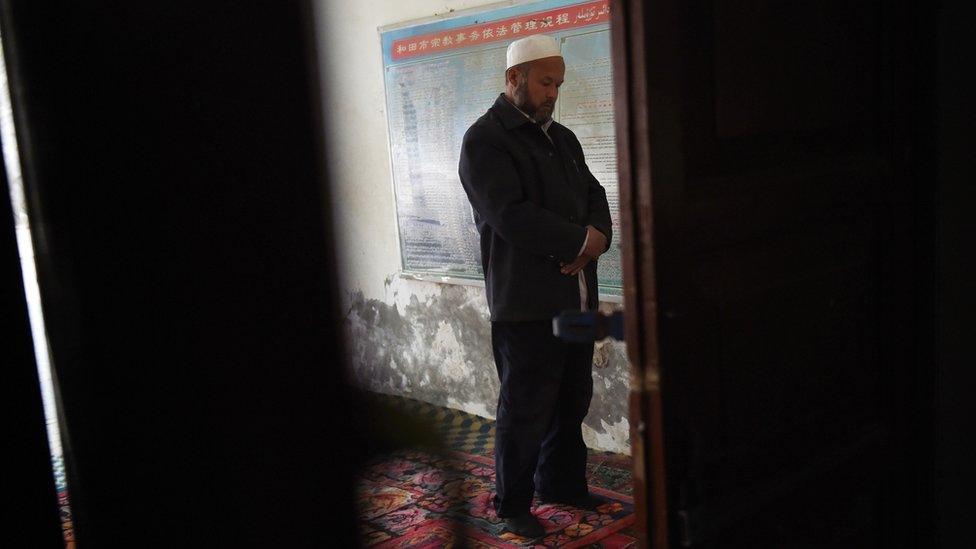
- Published16 October 2018
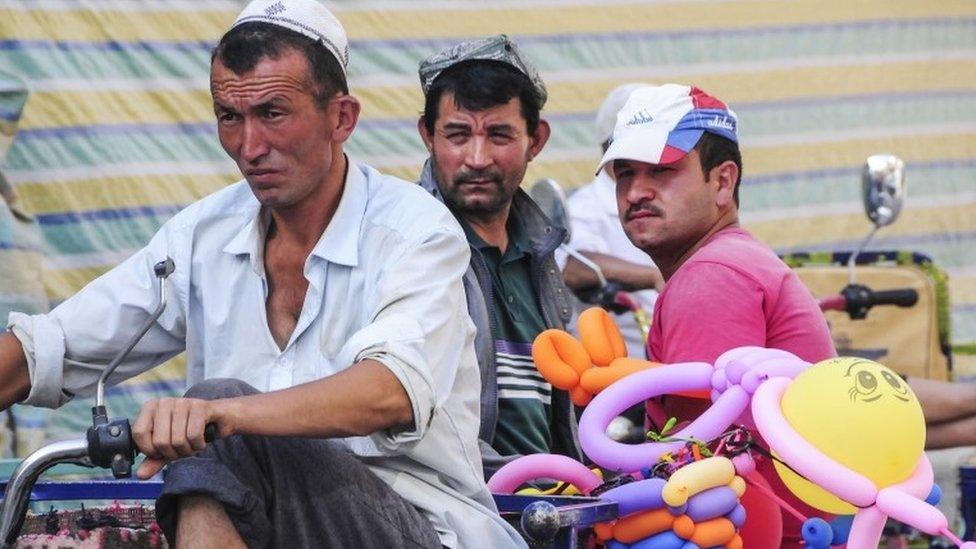
- Published10 October 2018
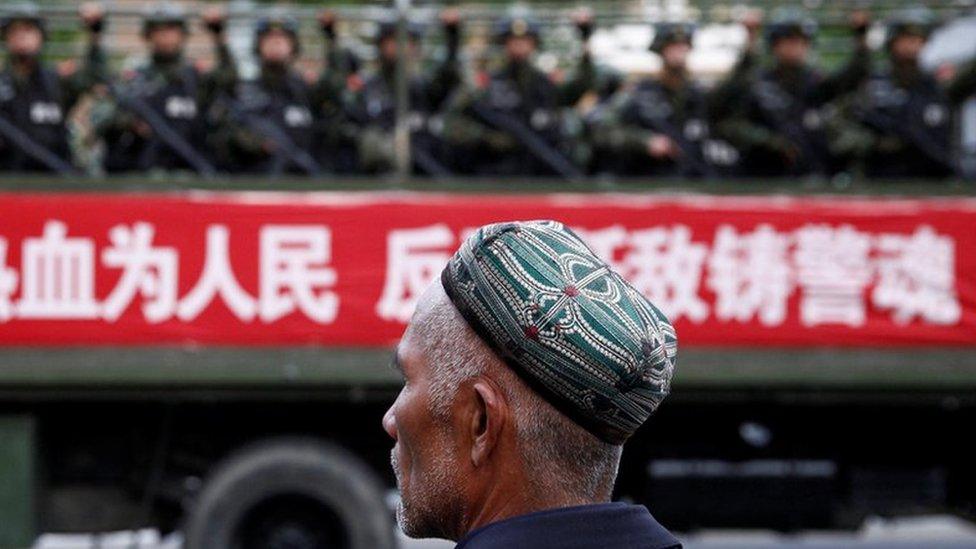
- Published25 August 2023
